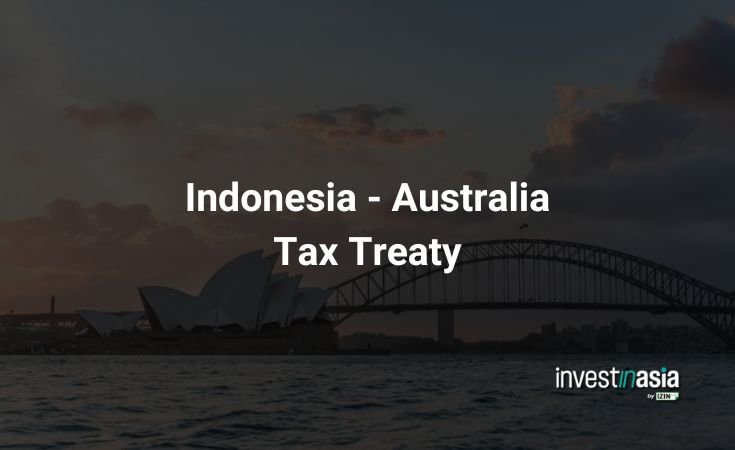The Indonesia-Australia tax treaty, formally known as the Agreement between the Government of the Republic of Indonesia and the Government of Australia for the Avoidance of Double Taxation and the Prevention of Fiscal Evasion with Respect to Taxes on Income, plays a crucial role in fostering economic and trade relations between the two nations. This guide delves into the essential aspects of this treaty, highlighting its benefits, key provisions, and practical implications for businesses and individuals engaged in cross-border activities.
Also read: Tax Treaty: Definition, Models, How It Works
Background and Significance


The Indonesia-Australia tax treaty aims to eliminate the double taxation that can occur when income is taxed by both Indonesia and Australia. It also provides mechanisms for resolving tax disputes, reducing tax evasion, and promoting economic cooperation. The treaty reflects the broader economic partnership between the two countries, which has been growing steadily over the years.
Also read: Indonesia’s PPN Guide: Rules, VAT Rates, Calculation
Key Provisions of the Treaty
- Avoidance of Double Taxation: The treaty ensures that income earned in one country by a resident of the other country is not taxed twice. For instance, an Australian company earning income in Indonesia will be subject to tax relief to avoid double taxation.
- Permanent Establishment (PE): The concept of PE determines the tax obligations of businesses. The treaty defines what constitutes a PE, such as a fixed place of business or a dependent agent. This provision helps businesses understand their tax liabilities in the other country.
- Withholding Taxes: The treaty specifies reduced rates for withholding taxes on dividends, interest, and royalties. For example, the withholding tax on dividends paid from an Indonesian company to an Australian shareholder is reduced, fostering cross-border investments.
- Exchange of Information: Both countries have agreed to exchange information to prevent tax evasion. This provision enhances transparency and cooperation between tax authorities, ensuring that taxpayers comply with tax laws in both jurisdictions.
- Non-Discrimination: The treaty includes a non-discrimination clause, ensuring that nationals of one country are not subject to more burdensome taxation than nationals of the other country under similar circumstances.
Also read: What is LKPM Reporting in Indonesia: Essential Guide
Benefits for Businesses
- Tax Certainty: The treaty provides clarity and certainty on tax matters, enabling businesses to plan their operations and investments with confidence. This minimizes the potential for unforeseen tax obligations.
- Reduced Tax Rates: Lower withholding tax rates on cross-border payments make it more attractive for businesses to invest and operate in the other country. This can lead to increased trade and investment flows.
- Dispute Resolution: The treaty includes provisions for resolving tax disputes through mutual agreement procedures. This mechanism helps businesses avoid lengthy and costly litigation.
- Encouragement of Investment: By removing tax barriers, the treaty encourages businesses to explore new markets and opportunities in Indonesia and Australia. This can lead to economic growth and job creation in both countries.
Also read: Indonesia Corporate Tax Rate: Navigating the Business Landscape
Practical Implications for Individuals


- Expatriate Taxation: For individuals working in the other country, the treaty provides guidelines on which country has the primary right to tax their income. This prevents double taxation and simplifies tax compliance.
- Tax Credits and Exemptions: Individuals can benefit from tax credits or exemptions on income earned abroad, depending on the specific provisions of the treaty. This can lead to substantial tax reductions.
- Retirement Benefits: The treaty also addresses the taxation of pensions and retirement benefits, ensuring that retirees are not unfairly taxed on their pension income.
Also read: Tax Treaty Indonesia: Countries List and Complete Guide
The Indonesia-Australia tax treaty is a vital instrument in promoting economic cooperation and preventing double taxation between the two countries. Its provisions provide significant benefits for businesses and individuals engaged in cross-border activities, enhancing the overall economic relationship between Indonesia and Australia. By understanding and leveraging the treaty’s provisions, businesses and individuals can optimize their tax positions and contribute to the continued growth of bilateral trade and investment.
This guide aims to provide a comprehensive overview of the Indonesia-Australia tax treaty, highlighting its significance and practical benefits.
For specific tax advice and detailed analysis, you can rely on InvestinAsia’s Indonesia tax consultant and compliance services. Our experienced team of professionals is ready to assist you in every tax matter, such as:
- Accounting and tax reporting services in Indonesia
- Indonesia Payroll Service
- Indonesia LKPM Reporting Service
- Indonesia VAT Taxpayers Registration
Contact us for a FREE tax consultation and get special offers!



